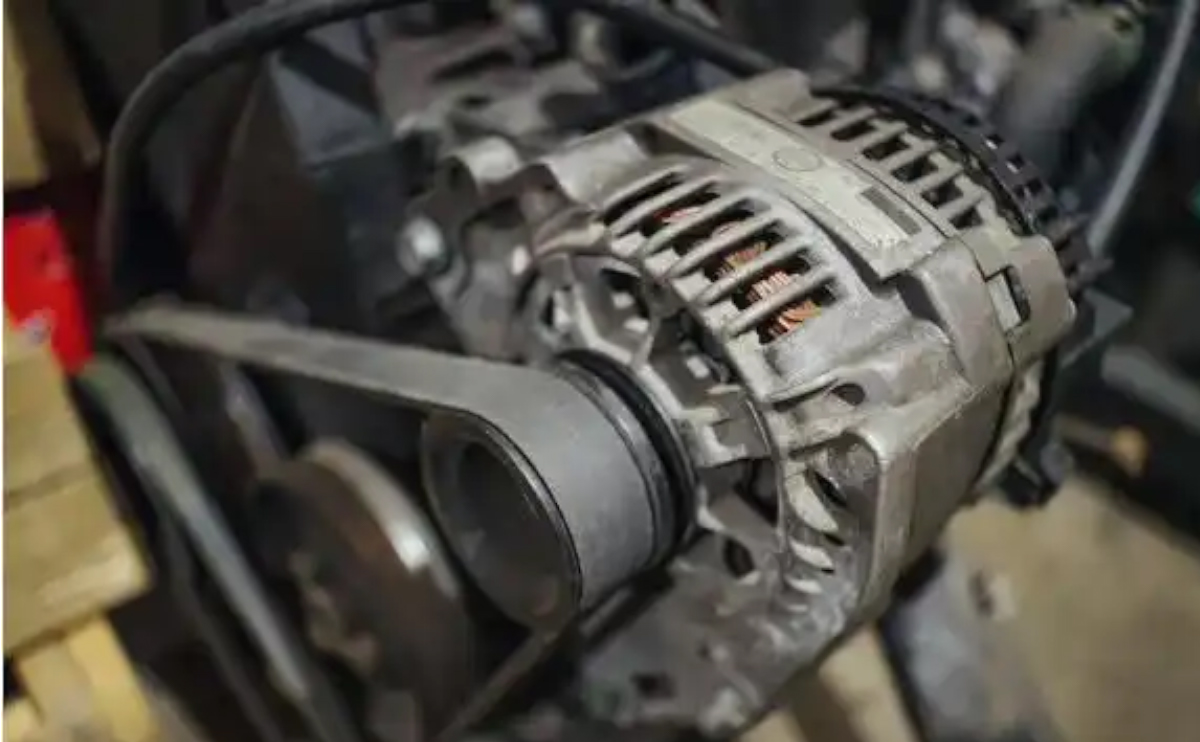These “4 noises” in your car could be bad automotive wheel bearing

Table of Contents
Is your car suddenly making strange noises, a minor or major problem? Maybe the automotive wheel bearing is broken
Every time I hear an unexplained sound coming out of my car, a wave of worry and fear goes through me. It’s a feeling that anyone who has driven a car surely understands. According to auto repair data, more than 65% of car owners will ignore the initial noise until the problem is serious to repair, resulting in an average of several hundred dollars more repair costs.
Recently, my friend’s BMW 3 series ignored the brake “squeak”, and finally not only changed the brake pads but also hurt the brake disc, the repair fee directly doubled.
Today we talk about the common 4 kinds of noise, hear the rush to deal with, don’t wait for the problem to become bigger.
If you hear a “squealing” sound from the brakes, it’s the brake pads asking for help.
This metallic friction sound usually occurs at low speeds or when braking. Many people think brake pad wear is trivial, but it is not.
My friend has been working in an auto body shop for 15 years, and he told me that brake pads have a wear indicator on them, and when the pads are worn to a certain level, the metal indicator will touch the brake disc and make a sharp sound, which is a reminder that it’s time to change your brake pads.
Measurement data show that if brake pads are worn more than 75%, the braking distance will increase by nearly 40%, emergency this may be the difference between accident and safety.
My car some time ago this sound, saw the mileage has run 76,000 kilometers, decisively replaced the brake pads. The sound disappeared after the change.
Wheels are making a “buzzing” sound, beware of tires and automotive wheel bearing!
Hearing a constant “buzzing” sound at highway speeds? Many people think it’s wind noise, but in reality, it may be uneven tire wear or a problem with the automotive wheel bearing.
Uneven tire wear can lead to wheel imbalance and vibration noise at high speeds. If it’s a bearing problem, the sound will vary with speed, usually most noticeable at 60-80km/h.
A real case: my neighbor’s car drove 70,000 kilometers after the highway buzzing, thought it was just a tire problem, but the result was delayed for a month, and finally the front automotive wheel bearing were completely damaged, resulting in driving the wheels suddenly and violently shaking, and almost caused a major disaster. Repairing the car spent thousands of dollars, but also delayed three days of work.
Professional tire store data show that normal tires 4-5 million kilometers should be checked, automotive wheel bearing generally 100,000 kilometers is a can. Don’t wait until the sound becomes louder to repair, then may have hurt other parts.If a slightly damaged automotive wheel bearing suddenly disintegrates while driving, it could very easily cause a disaster.
Steering “clicking”, the suspension system in the alarm!
This knocking sound usually occurs when you’re turning a corner or going over a speed bump, and it sounds like the body is crashing somewhere. It actually means there’s a problem with the suspension or steering system.
Specifically, it could be a damaged shock absorber, a loose steering tie rod, or a worn suspension ball joint. Once I drove a friend’s used car, turning the front wheels to hear this sound, checked and found that the lower swing arm rubber bushing deteriorated, only to replace the car more than 3 years, it seems that the previous owner did not run a lot of bad roads.
Traffic department statistics show that the suspension system failure caused by loss of control of the vehicle accidents accounted for 17% of highway accidents, many of which have a pre-sound warning but were ignored.
Engine “hissing” or “grumbling” is the most dangerous signal!
Engine rattles are the most important sound of all. “Hiss” sound may be the valve, or cylinder problems, and the ‘grumble’ sound is most likely the water pump or cooling system problems.
Lee ignored the engine noise the year before last, and as a result, after driving more than 200 kilometers, the engine suddenly overheated, and the towing + repair cost a lot of money. The actual test was found to be water pump bearing damage, early discovery may only need a few hundred dollars to solve.
Auto repair experts told me that for every 10°C over engine temperature, engine life will be reduced by about 15%.
When you hear a noise in the engine, you’d rather make a big deal out of a small problem than a big problem. After all, the engine is the heart of the car, the problem repair costs can easily be thousands.
Has your car ever had these sounds? After listening to what I said, the next time you encounter a noise, will you pay more attention to it?
Quality Bearings
Automotive Wheel Bearing Grease: Selection Guide.
As a core component of the vehicle transmission system, the lubrication efficiency of automotive wheel bearing directly affects the safety of driving and mechanical life. In the face of a wide range of grease products on the market, how to accurately match the needs of the working conditions, to avoid high-temperature failure, water emulsification, and other potential risks.
Base oils: the trade-off between performance and cost.
Mineral oils: suitable for urban commuter vehicles with an average annual mileage of less than 20,000 kilometers, relatively low cost, but with poor high-temperature oxidation resistance.
Synthetic oils:
PAO synthetic oils: can be used in a wide range of temperatures from – 40℃ to 180℃, and are 3 times more stable than mineral oils in high-temperature environments, making them ideal for high-speed vehicles.
Ester oils: have excellent hydrolysis resistance and perform well in humid coastal areas or rainy environments.
Protect automotive wheel bearing , protect your life.




